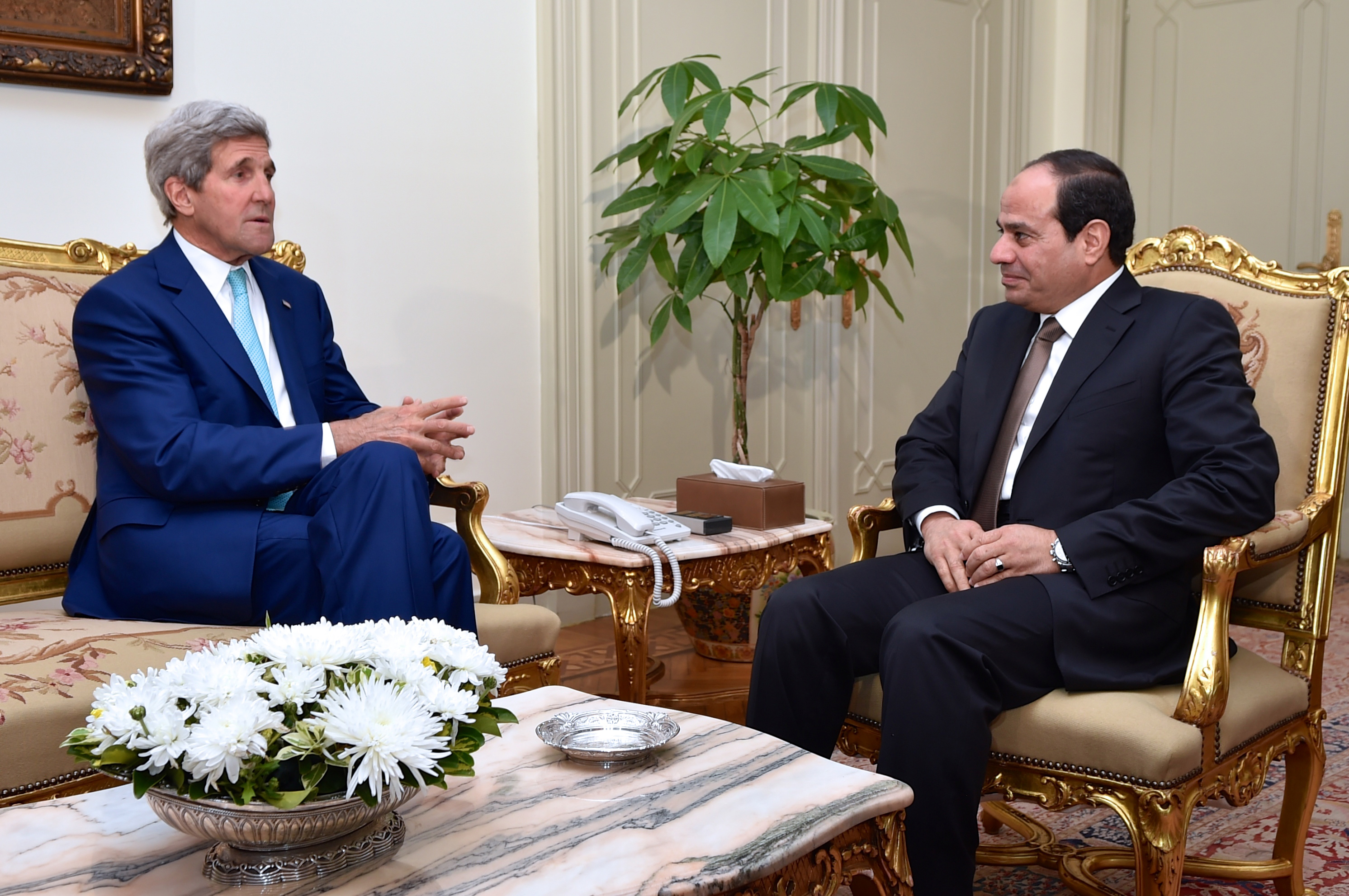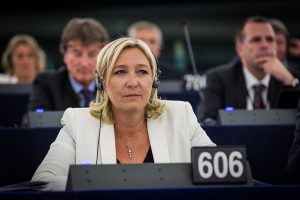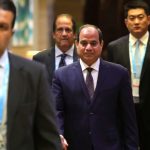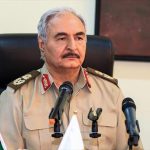by Zhai Yun Tan
Muhammad Mansour is an Egyptian journalist who covered the 2011 revolution that ousted longtime president Hosni Mubarak. He briefly participated in the revolution before returning as a journalist and contributing numerous articles for the Egypt Independent, The Washington Post, and The Guardian about the clashes between protestors and armed forces as well as the military’s violations of human rights. In 2014, Mansour successfully applied for political asylum in the United States. He is currently a visiting fellow at the Washington Institute for Near East Policy and a freelancer for the Jamestown Foundation.
What were the challenges you faced as a journalist since the 2011 revolution to the ascension of Abdel Fateh al-Sisi to power?
Each phase has its characteristics. In the beginning, before Mubarak’s ouster, I did investigative reporting on human rights but I could not criticize Mubarak himself or his family. You could not criticize the military. If you even spoke about Mubarak, his sons, or even his friends– businessmen who are corrupt— they would come after you because it was a police state. The state security was very famous for torturing people, and you cannot risk that.
After the revolution, everything was open. You could do anything. You could criticize the military, you could criticize Mubarak, and you could criticize the president. There was freedom of speech. But after Sisi came to power, after the military overthrew Morsi, we are turning back to Mubarak and even worse.
In 2013, you broke a story revealing the forced disappearances of protestors by the military during the 2011 revolution that was published in The Guardian. How did you get the story and what was it about?
It was based on leaked documents. There was a fact-finding committee appointed by Morsi in 2012, and they were investigating what happened from 2011 to 2012. They referred their findings to the president, and it should have gone to the prosecution, but the prosecution didn’t do anything. So there was a member of the committee who leaked me the document.
It’s about some cases of people who disappeared and never returned during the revolution. I went to the families of the people who disappeared, heard from them what they did. I met NGOS working only on the file of people who disappeared. I collected data, I put them all together, and I published this major exclusive with The Guardian. A large number of people who disappeared went through detention centers. There was possibility that they were tortured to death, and the prosecution didn’t know about them. No one knew about them. They were buried somewhere without any accountability. It was during this time that the country was run by the military, and these people were arrested at military checkpoints.
What was the impact of the story, and how did it affect you?
It stirred controversy in the media community and it became a public opinion issue. I knew that I was monitored. I had state security policemen following me, trying to show me first that it was not a direct threat, but to let me know that I was threatened in order to censor me so that I don’t touch on issues that I knew that they would not like. You can tell by seeing similar faces in several occasions. There are some incidences like when I asked the doorman about people asking about me, asking about who is visiting me, what is my job, all of that because they know that the doorman will tell me and I will be scared and I will either stop my journalism or write something light. When I felt threatened, I did light news just to mitigate the crisis. But after that I turned back to investigative writing.
I focused on human rights until one day I was stopped at a checkpoint and they took me to a police station. It’s a really long story, but I was lucky that I was released. I heard that they were planning to make up a charge. They had the evidence—the evidence was my articles. They charged me with disrupting the public peace. If they don’t like somebody they can accuse them of these things and put them in prison for life. During this time there were many journalists who were arrested who were working for big organizations like Al Jazeera. I felt like I was in this vicious cycle, and it was getting worse and I was very close to being in prison or being disappeared. So I thought, “It’s not worth it and it’s better to be safe.” That’s why I came here.
What else have you investigated regarding human rights violations by the military?
I wrote a story about an underground prison, but I didn’t mention my name. The prison was run by the military, and it’s like the Bastille in France, where if you go there you will be tortured and you can die and nobody will know about you. This is a forced disappearance. When Sisi came to power two years ago, this was part of the crackdown on all aspects of life.
I continued doing investigative reporting from time to time, exposing people in government who are corrupt. They are always behind the curtain and they give orders to policemen to shoot. We don’t hold these policemen accountable. We hold the person who gives them the order because he is like a machine. For example, on the anniversary of the Mohammed Mahmoud incident, people were protesting for the rights of martyrs, for people who were killed during the revolution. They clashed with police, and the clashes went viral. There was a policeman who was always shooting at the eyes of people, and there was a large number of people, almost 20 or 30 or more, who lost their eyes. In my story I exposed the high-profile policeman who gave the orders, and he was the one who escalated the clashes. But instead of holding him accountable, he was promoted during Sisi’s time to be a governor.
What is the state of the public opinion in Egypt? Are people aware of the human rights violations and the political situation? Have the protests against al-Sisi subsided with the crackdown on dissent?
About 40 percent of Egyptians are under the poverty line. Illiteracy is very high, unemployment is very high, and it’s getting worse. In this situation, people they don’t have the awareness or the knowledge of how to make a change, so they accept anything that comes. They don’t care and they become helpless. They are ignorant. How do they know when the military says that they arrested a foreigner who was a spy, so when they see any foreigner they think that he is a spy and they have to stop them? You have the Muslim Brotherhood and the liberals, these are the people who made the revolution. They are always criticizing, but they cannot protest. Lots of Muslim Brotherhood members left the country or are in jail or were killed. Liberals are the same because they cannot live in this situation. The large part of the society, we call them the “couch party” since the revolution because they have nothing to do. They are not interested. They are just following. They see the news and they never take initiative or action. That’s why it’s very difficult to make the change without enlightenment. To make a change you need to get these people involved and teach them how to make the right decision.
Many have criticized the United States government for being too soft on al-Sisi and ignoring his authoritarian actions. What do you think the United States and the international community should do to ease the situation in Egypt?
Just to take care about your own issues. I hope that the United States doesn’t get involved. For example when I was in the revolution, I saw the tear gas canisters fired against protestors. Many people were killed by this tear gas. You see the canisters, and you see “made in USA.” What impression would you have when you see that? I hope the international community has one opinion—not to touch or not to help the authoritarian regime to violate human rights.
What is the theme of your work now and what do you aim to do next?
The main theme of my writings is enlightenment. This is what we need in Egypt. Enlightenment includes tolerance, includes reform. You have to reform religion. I’m going to write a story about how to fight terrorism and the Islamic State through reform. The last one I did for Fikra Forum for the Washington Institute is about why the Arab Spring produced only two options: terrorism and ISIS, and authoritarian regimes. I am suggesting that you cannot just fight them [terrorists] in Sinai because it’s an ideology, it is not just individuals. You can’t kill them and get rid of terrorism—you need to fight the radical ideology itself… My point is that when you violate human rights, when you torture them, you take their humanity away and they become vulnerable to any radical ideas. This is how radical ideology has expanded.
Photo: John Kerry meeting with Abdel Fattah al-Sisi
Zhai Yun Tan has published with Inter Press Service.






None the less, Al-Sisi is a reliable friend of the west , and more important, doesn’t threaten security of Israel . Isn’t that enough for him and the like to rule Egypt ?
” Human rights” ?? It is a good subject for intellectuals and liberals to talk about and for politicians to pretend that they observe it, but for running a poppet regime on behalf of foreign interests , it is a subject to be avoided!!!